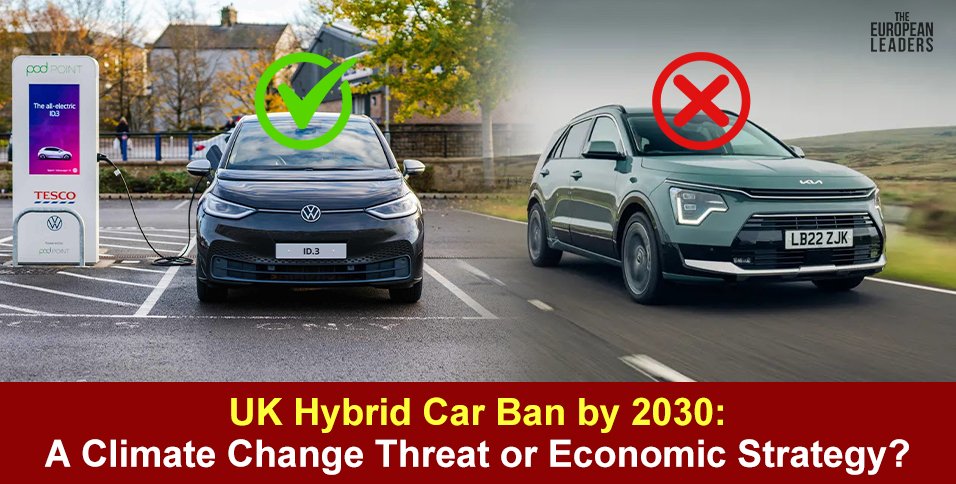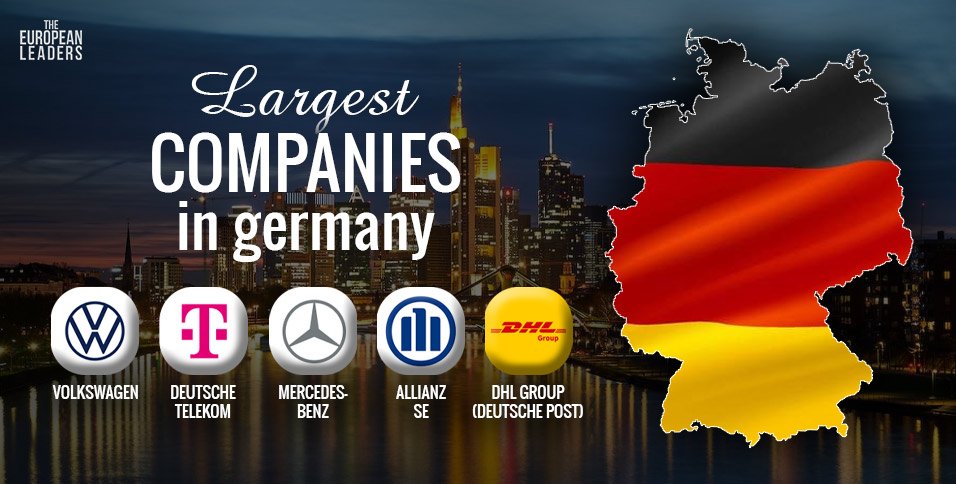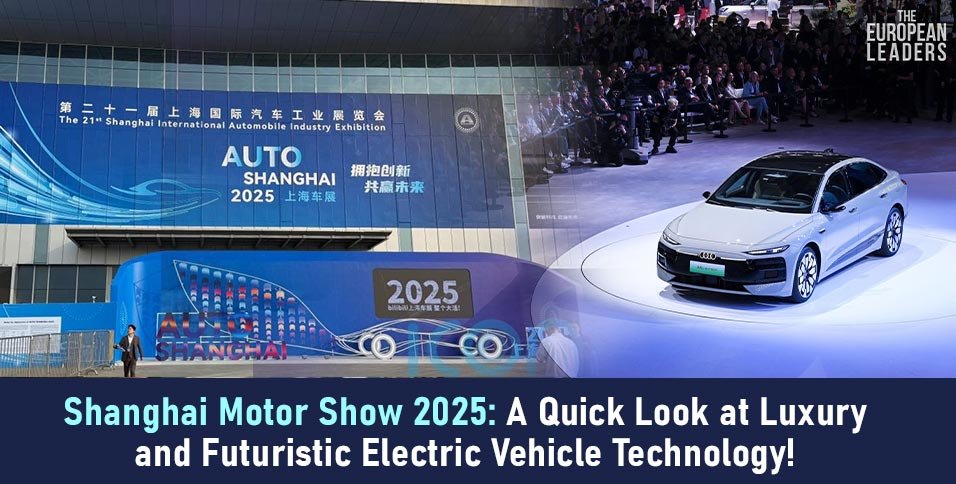The European Leaders
03 January 2025
London – The UK is navigating a challenging landscape, grappling with climate change, global warming, and an economic slowdown. Amid this struggling phase, the UK Hybrid Car Ban has sparked intense debate, with some calling any allowance for non-plug-in hybrids a “catastrophic misstep” in the nation’s push toward carbon neutrality.
The Department for Transport (DfT) has confirmed that starting January 1, 2030, new cars powered solely by internal combustion engines will no longer be sold. Additionally, consultations are underway to determine which hybrid models, if any, can be sold until 2034, after which all new non-zero-emission vehicles will be banned.
This bold policy aims to accelerate the UK’s transition to a greener future, but it raises critical questions: Are automakers equipped for this shift, and how will consumers adapt to an all-electric future?
What Does the UK Hybrid Car Ban Entail?
The policy, part of the UK’s broader strategy to achieve net-zero emissions by 2050, is centered on banning new petrol and diesel vehicles by 2030. Hybrid vehicles may follow suit in 2035, depending on ongoing consultations. The government is setting stricter CO₂ emission limits that could render many hybrid models obsolete.
While these steps aim to reduce greenhouse gas emissions, they raise concerns about readiness and adaptability for businesses and consumers alike.
Industry Reactions: A Mixed Verdict
Proponents argue the ban is necessary for fostering a cleaner future. Groups like Electric Vehicles UK (EVUK) claim hybrids offer a temporary solution at best, advocating for an accelerated shift to fully electric vehicles (EVs). They see hybrids as a hindrance to consumer confidence in EVs and the infrastructure required to support them.
Critics, however, stress the challenges of such a rapid transition. Automotive manufacturers, already grappling with the shift from internal combustion engines, fear that stringent regulations could harm an industry investing billions in hybrid technologies. Many argue hybrids are a necessary bridge for consumers hesitant to switch to EVs due to costs and inadequate charging networks.
The UK’s plan to ban hybrid and ICE vehicles has drawn mixed responses from various sectors:
- Automotive Experts: Industry leaders, such as Dr. Andy Palmer, highlight the importance of hybrid vehicles as a stepping stone. While not ideal, full hybrids offer a better transition compared to mild hybrids, which cannot run on electric power alone.
- Economic Concerns: Groups like the Society of Motor Manufacturers and Traders (SMMT) warn that without proper infrastructure and incentives, consumer adoption of EVs could be delayed. They stress the need for more charging points and financial support to ensure a smooth transition.
This mix of support and skepticism highlights the complexities of moving toward a zero-emission future while addressing economic and technological challenges.
Economic Impacts on Consumers
The financial implications of the UK Hybrid Car Ban are substantial. On one hand, owners of hybrid vehicles may see depreciation in resale value as demand wanes. On the other hand, the switch to EVs could mean higher upfront costs despite lower long-term running expenses. For many, these costs could deter adoption without significant government incentives.
The broader economy faces its own challenges. Job losses in hybrid vehicle production are inevitable, but the rise of EV manufacturing and charging infrastructure projects promises new employment opportunities. The automotive sector must innovate quickly to maintain competitiveness in this evolving market.
A Path Forward: Alternatives and Adaptation
As hybrid cars face potential extinction, the focus shifts to viable alternatives:
- Fully Electric Vehicles (EVs): The backbone of the UK’s zero-emission goals, supported by investments in nationwide charging stations.
- Hydrogen Fuel Cell Vehicles: Promising zero-emission transport with quick refueling capabilities.
- Synthetic Fuels: In development as a low-carbon option for existing vehicles.
A Double-Edged Sword
The UK Hybrid Car Ban highlights the delicate balance between environmental responsibility and economic stability. While it positions the nation as a leader in global climate action, the transition must be managed carefully to avoid alienating industries and consumers.
For businesses, this shift represents a test of resilience and adaptability. For consumers, it is a call to reimagine transportation. And for the government, it is an opportunity to lead by example in crafting policies that align environmental imperatives with economic realities.
The countdown to 2030 has begun. Whether the UK Hybrid Car Ban emerges as a landmark climate victory or a cautionary tale will depend on the execution of this monumental transformation.








